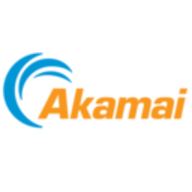

Radware Cloud WAF Service and Akamai App and API Protector compete in the cloud security space. Radware appears to have an edge in scalability and ease of integration, while Akamai offers a highly customizable and comprehensive security feature set.
Features: Radware Cloud WAF Service emphasizes scalability, stability, and ease of use with strong Layer 7 protection, bot management, and DDoS defense. It employs machine learning to improve traffic analysis and features a CDN for better content delivery. Akamai App and API Protector is highlighted for its robust bot management and adaptive stream delivery. It provides detailed traffic analysis and offers extensive customization and integration options.
Room for Improvement: Radware Cloud WAF Service needs enhanced integration capabilities, better reporting, and API management features. Users seek more sophisticated analytics and improved documentation. Akamai App and API Protector requires improvements in its WAF features, better integration with enterprise systems, and simplified usage for regular users. Both products need better customer support and analytical capabilities.
Ease of Deployment and Customer Service: Radware Cloud WAF Service offers efficient public cloud deployment with strong support, though response times can be improved. Users value the provided guidance during deployment. Akamai App and API Protector gets positive feedback for support within hybrid cloud options, albeit with varied response times. Radware is recognized for swift issue resolutions and effective customer interactions.
Pricing and ROI: Radware Cloud WAF Service is competitively priced, offering good value, particularly with bundled deals. It delivers significant ROI by lowering expenses and risks. Akamai App and API Protector, though considered expensive, justifies its cost with comprehensive features, appealing to large enterprises. The ROI is attributed to enhanced security offerings, with smaller businesses finding pricing challenging.
I wouldn't be able to give a number, but Radware Cloud WAF does save time for our staff due to the automation and excellent detection, which is invaluable.
With our on-prem solution, we spent a lot of time on maintenance tasks, OS updates, and ensuring appliances ran smoothly, but with Cloud WAF, all that is managed by the cloud team, allowing us to focus on alert analysis.
We get major insights from the analytics rules and dashboards, allowing us to pinpoint main issues.
On a scale from one to ten, I would rate the technical support that Radware provides for Cloud WAF Service a perfect ten.
I would give the Radware technical support a ten out of ten. They are definitely outstanding.
The support provided by Radware's Emergency Response Team is excellent.
The scalability of Radware Cloud WAF Service rates as a perfect ten out of ten, as we haven't encountered any scaling issues.
The scalability of the Radware Cloud WAF Service deserves a full ten, as it is definitely scalable.
In terms of scalability, it's also a 10 out of 10 because we are using Radware Cloud WAF Service for more than 60,000 employees in our organization, and it works perfectly fine.
I have never encountered downtime, maintenance-related issues, or latency.
The stability of Radware Cloud WAF Service is excellent, and I would rate it as a ten.
The stability of Radware Cloud WAF Service is perfect; I would rate it a ten out of ten.
It would be beneficial if we could perform POST requests and integrate our applications more effectively.
The documentation is not up to par, as while the platform's system is robust, the documentation, particularly for API integration, could be more developer-friendly with real-world use cases.
Improving dashboard capabilities to provide this information clearly for management is crucial.
Pricing could be more competitive, especially for smaller customers.
I find Radware Cloud WAF to be a quite expensive product compared to others.
The pricing is not cheap; it is expensive, but it is effective.
The area in which Akamai excels compared to other competitors with a WAF is in threat intelligence, as threats continually evolve, requiring ongoing updates to backend algorithms to effectively capture smart bots.
The most important aspect of Radware Cloud WAF is that it is over the cloud, offering a comprehensive solution that includes WAF, API protection, bots, and Layer 7 DDoS.
It has features such as API security that protect against advanced attacks, including business logic attacks.
The automated analytics for looking at events in Radware Cloud WAF Service are working for us; the automatic event correlation is very beneficial to analyze how the alerts and events occur and visualize the patterns of network traffic and other traffic going in and out from the application via Radware Cloud WAF Service.
| Product | Market Share (%) |
|---|---|
| Radware Cloud WAF Service | 2.1% |
| Akamai App and API Protector | 3.0% |
| Other | 94.9% |

| Company Size | Count |
|---|---|
| Small Business | 4 |
| Midsize Enterprise | 7 |
| Large Enterprise | 18 |
| Company Size | Count |
|---|---|
| Small Business | 9 |
| Midsize Enterprise | 10 |
| Large Enterprise | 37 |
Akamai App and API Protector provides website security by preventing DDoS attacks, acting as an application firewall, managing content delivery, and monitoring APIs. It adapts to threat profiles and is used for fast media delivery and identifying malicious activities.
Akamai App and API Protector offers strong protection, adaptable security features, and efficient traffic management. Its WAF blocks IP addresses and country-specific threats while preventing SQL injections. Companies utilize it for scalable CDN services and comprehensive traffic analysis. Known for its cost-effectiveness and user-friendly dashboard, this protector stands out for its customizable rules and technical support. Users also highlight the ease of integration and detailed attack insights available through its advanced dashboard.
What are the key features of Akamai App and API Protector?In media, Akamai App and API Protector ensures smooth streaming by handling high bandwidth demands. E-commerce companies use it to guard against fraud and data breaches. Financial sectors rely on its ability to protect sensitive transactions. Implementations in healthcare focus on safeguarding patient data while maintaining compliance with regulations.
Radware’s Cloud WAF provides enterprise-grade, continuously adaptive web application security protection. Based on Radware’s ICSA Labs certified, market-leading web application firewall, it provides full coverage of OWASP Top-10 threats and zero-day attacks, while implementing both negative and positive web application security models to automatically adapt protections to evolving threats and protected assets.
Radware’s Cloud WAF offers full web security protection including OWASP Top-10 coverage, advanced attack protection and 0-day attack protection by implementing both negative and positive web application security models. It provides organizations “frictionless” application protection by automatically detecting and protecting new web applications as they are added to the network through automatic policy generation technology.
We monitor all Web Application Firewall (WAF) reviews to prevent fraudulent reviews and keep review quality high. We do not post reviews by company employees or direct competitors. We validate each review for authenticity via cross-reference with LinkedIn, and personal follow-up with the reviewer when necessary.